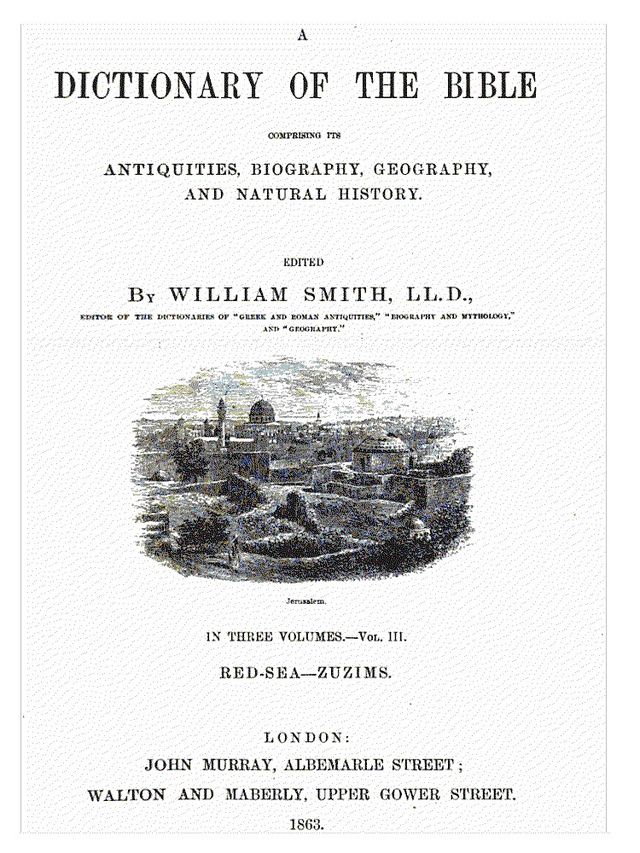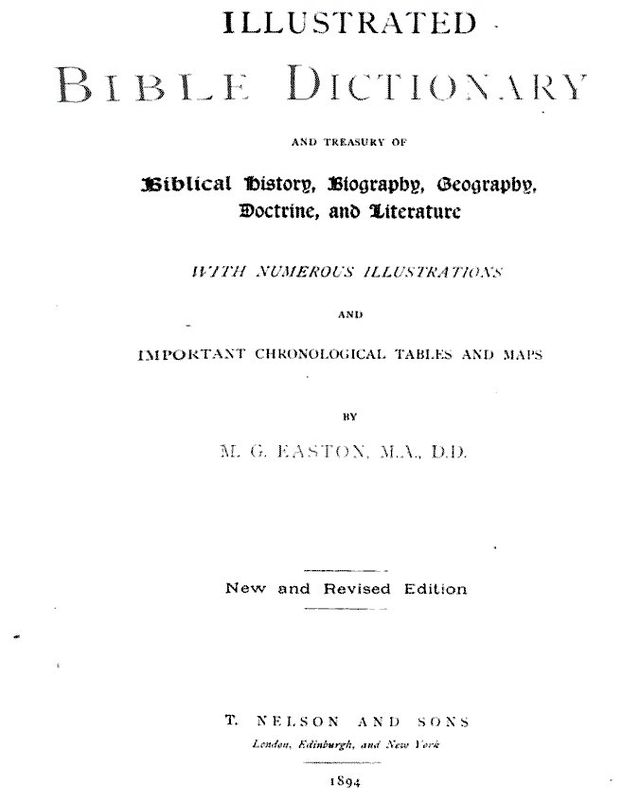List of biblical names
From Wikipedia, the free encyclopedia
Names play a variety of roles in the Bible. They sometimes relate to the nominee's role in a biblical narrative, as in the case of Nabal, a foolish man whose name means "fool".[1] Names in the Bible can represent human hopes, divine revelations, or are used to illustrate prophecies.[2][clarification needed]



Nave's Topical Bible 1905
The titles given to characters, locations, and entities in the Bible can differ across various English translations. In a study conducted by the BibleAsk team in 2024, a comprehensive catalog of names found in the King James Version was compiled and organized into categories such as individuals, geographical locations, national groups, and miscellaneous designations. The team discovered that within the King James Version Bible, a total of 3,418 distinct names were identified. Among these, 1,940 names pertain to individuals, 1,072 names refer to places, 317 names denote collective entities or nations, and 66 names are allocated to miscellaneous items such as months, rivers, or pagan deities. There are instances of overlap, where the same name may be used across multiple categories (e.g., as both a personal name and a geographical location).[3]
Most popular names
During the period 330 BC – 200 AD, the most common male names in Judea or post Kingdom of Israel were:[4]
- 1. Simon/Simeon
- 2. Joseph/Joses
- 3. Lazarus
- 4. Judah
- 5. John
- 6. Jesus
- 7. Ananias
- 8. Jonathan
- 9. Matthew/Matthias
- 10. Manaen
- 11. James
- 12. Michael
During this period, the most common female names were:[4]
- 1. Mary
- 2. Salome
- 3. Shelamzion
- 4. Martha
- 5–6. Joanna and Sapphira (equally common)
- 7. Berenice
- 8–9. Imma and Mara (equally common)
- 10–12. Cyprus, Sarah, and Alexandra
Lists
- List of biblical names starting with A
- List of biblical names starting with B
- List of biblical names starting with C
- List of biblical names starting with D
- List of biblical names starting with E
- List of biblical names starting with F
- List of biblical names starting with G
- List of biblical names starting with H
- List of biblical names starting with I
- List of biblical names starting with J
- List of biblical names starting with K
- List of biblical names starting with L
- List of biblical names starting with M
- List of biblical names starting with N
- List of biblical names starting with O
- List of biblical names starting with P
- List of biblical names starting with Q
- List of biblical names starting with R
- List of biblical names starting with S
- List of biblical names starting with T
- List of biblical names starting with U
- List of biblical names starting with V
- List of biblical names starting with Y
- List of biblical names starting with Z
See also
- Gemstones in the Bible
- Genealogies in the Bible
- List of major biblical figures
- List of minor Old Testament figures, A–K
- List of minor Old Testament figures, L–Z
- List of minor New Testament figures
- List of biblical places
- List of animals in the Bible
- List of plants in the Bible
- List of women in the Bible
- List of names for the biblical nameless
- List of modern names for biblical place names
- Young's Analytical Concordance to the Bible – for which later editions contain A complete list of Scripture Proper Names as in the Authorised and Revised Versions, showing their modern pronunciation and the exact form of the original Hebrew by Wm. B. Stevenson.
- Theophory
- Bible names in their native languages
References
Further reading
External links
Wikiwand - on
Seamless Wikipedia browsing. On steroids.
